Batukamma
Bathukamma is a vibrant and culturally significant festival in Telangana, celebrated with devotion and enthusiasm. The word Bathukamma means "Mother Goddess come to life" in Telugu, and the festival is a tribute to the goddess Gauramma, symbolizing the beauty, power, and grace of nature.
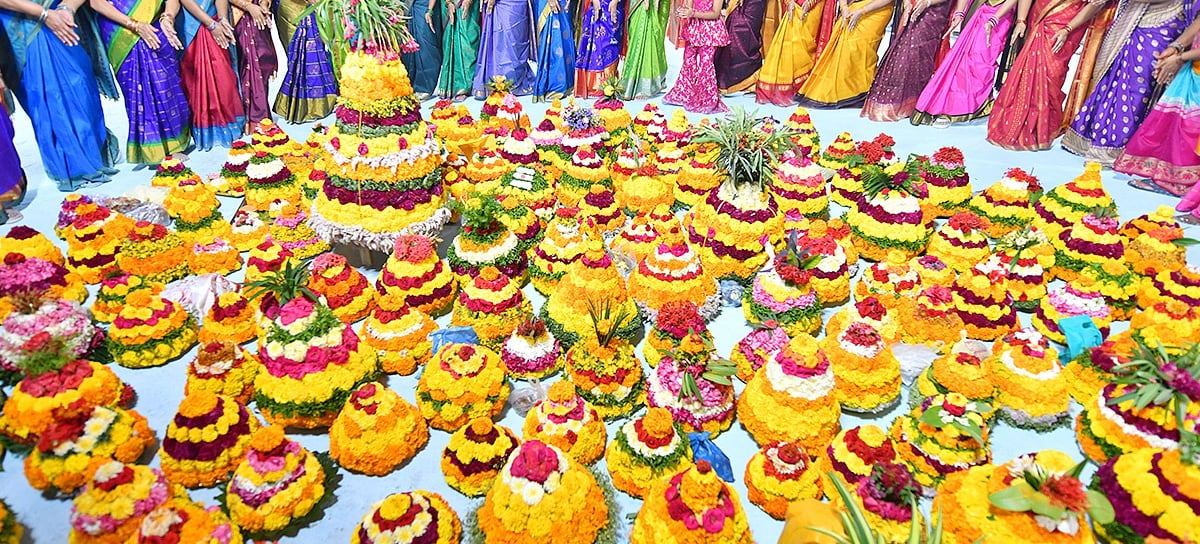

Importance of Bathukamma in Telangana
Cultural Identity: Bathukamma is an integral part of Telangana's cultural heritage, representing the essence of the region's traditional values, customs, and connection to nature. Women create beautiful floral arrangements in the shape of a conical mound, known as Bathukamma, using seasonal flowers like gunugu (Celosia), tangedu (Cassia auriculata), and others.
Ecological and Agricultural Significance: The festival aligns with the harvest season, celebrated at the end of the monsoon, when the fields are lush and flowers bloom. This timing reflects the agrarian roots of Telangana and showcases respect for nature. The flowers used in the arrangements have medicinal properties and are believed to purify water sources after being immersed.
Women's Empowerment and Community Bonding: Bathukamma is primarily a women's festival. It provides a space for women to come together, sing folk songs, celebrate, and feel a sense of empowerment and community.
Symbol of Resilience: The festival also symbolizes resilience and hope. According to legend, it commemorates the story of Sati's rebirth as Parvati, representing the spirit of life and continuity.
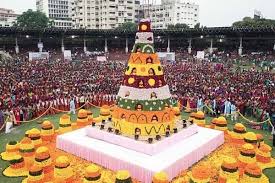

Revival of Bathukamma during the Telangana Movement
During the Telangana statehood movement in the early 2000s, Bathukamma became a powerful symbol of Telangana’s unique cultural identity and pride, distinguishing it from the Andhra region. Here’s how and why it was revived during the agitation
Cultural Assertion: The Telangana agitation was partly rooted in a desire to reclaim and celebrate Telangana’s distinct cultural identity, which was seen as marginalized under the unified Andhra Pradesh state. Bathukamma was highlighted as a symbol of this identity, fostering a sense of unity and pride among people of Telangana.
Popular Support and Mobilization: Organizers and activists revived Bathukamma on a large scale to bring people together in solidarity. The festival served as a unifying cultural platform, helping to mobilize people and gather mass support for the Telangana statehood movement.
Political Emphasis on Cultural Preservation: Leaders of the Telangana movement emphasized the festival as a key cultural heritage of Telangana. It was promoted and celebrated publicly, not only within Telangana but also among the Telangana diaspora, to keep cultural awareness strong and emphasize the need for statehood.
Official Recognition: Post-formation of Telangana in 2014, Bathukamma was declared a state festival, receiving official recognition and support. The Telangana government organized Bathukamma celebrations, emphasizing its role in preserving and promoting the state’s cultural identity.
Bathukamma today is not only a celebration of Telangana's culture and spirit but also a reminder of the people’s resilience and unity during their struggle for self-identity and statehood.
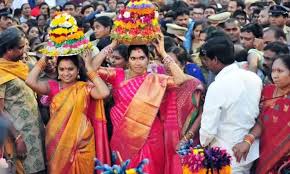

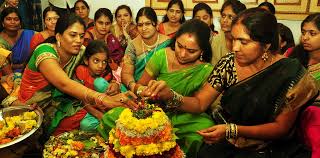

Most influential contributors
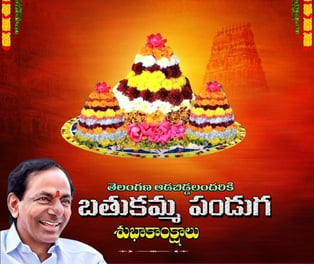

KCR
The chief architect of the Telangana statehood movement and the leader of the Telangana Rashtra Samithi (TRS), K. Chandrashekar Rao recognized the importance of Bathukamma as a cultural rallying point. He promoted the festival as part of the Telangana movement’s efforts to reclaim and emphasize the unique identity of Telangana. Following the formation of Telangana in 2014, KCR’s government officially recognized Bathukamma as a state festival and began organizing large-scale celebrations and events around it.
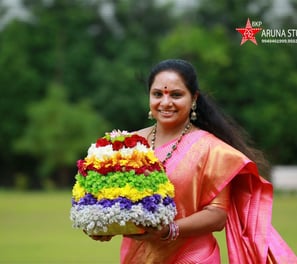

Kavitha Kalvakuntla
Daughter of KCR and a prominent TRS leader, Kavitha played a significant role in popularizing Bathukamma, especially among the youth and the Telangana diaspora. Through her organization, Telangana Jagruthi, she actively promoted the festival across India and internationally, organizing cultural events and Bathukamma celebrations. Her efforts helped Bathukamma gain visibility and recognition, making it a point of pride for Telangana’s identity and cultural heritage.
